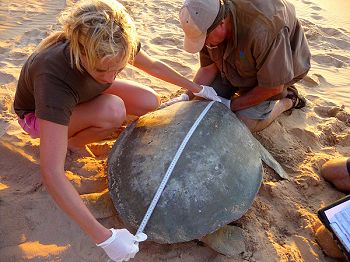15 July 2011(back to press release archive)
The need for continued worldwide animal conservation has been vividly underlined by the publication of the latest IUCN Red List of threatened species according to one expert.
“The International Union for the Conservation of Nature is the world’s leading authority on the current human-induced biodiversity crisis,” said Dr Matthias Hammer, Executive Director at Biosphere Expeditions, the award-winning, not-for-profit, conservation organisation. “Its latest report shows that in the last year 914 species have been added to the Red List.”
“Sadly there are now over 19,000 species in one of its three threatened categories, a jump of over 8,000 in the last decade. We will probably never know what the true figure is as the IUCN Red List has only evaluated about three percent of the world’s nearly two million species.”
“What it does do is provide governments, non-governmental organisations and influential people with a wealth of information about the current state of species in their areas of influence.”
Biosphere Expeditions has been helping to provide information for the Red List on many fronts, for example by carrying out a project in Western Australia to provide vital information about the iconic Australian flatback turtles (Natator depressus).

A volunteer helping to measure an Australian flatback.
These Australian flatback turtles are still listed as ‘Data Deficient’ by the IUCN and the results of this project will go a long way to assisting to fill in the information gap for this species.
“What organisations such as Biosphere Expeditions can do is give ordinary people the opportunity to go on projects, such as the one in Western Australia, where they can assist scientists in work that really can make a difference,” said Hammer.
“With the rapid decline in government and grant funding for biodiversity research, volunteer contributions are becoming increasingly vital. It is important both that this crucial conservation work continues to be carried out and also that the plight of many of the world’s threatened species is brought to people’s attention.”
> back to press release archive
